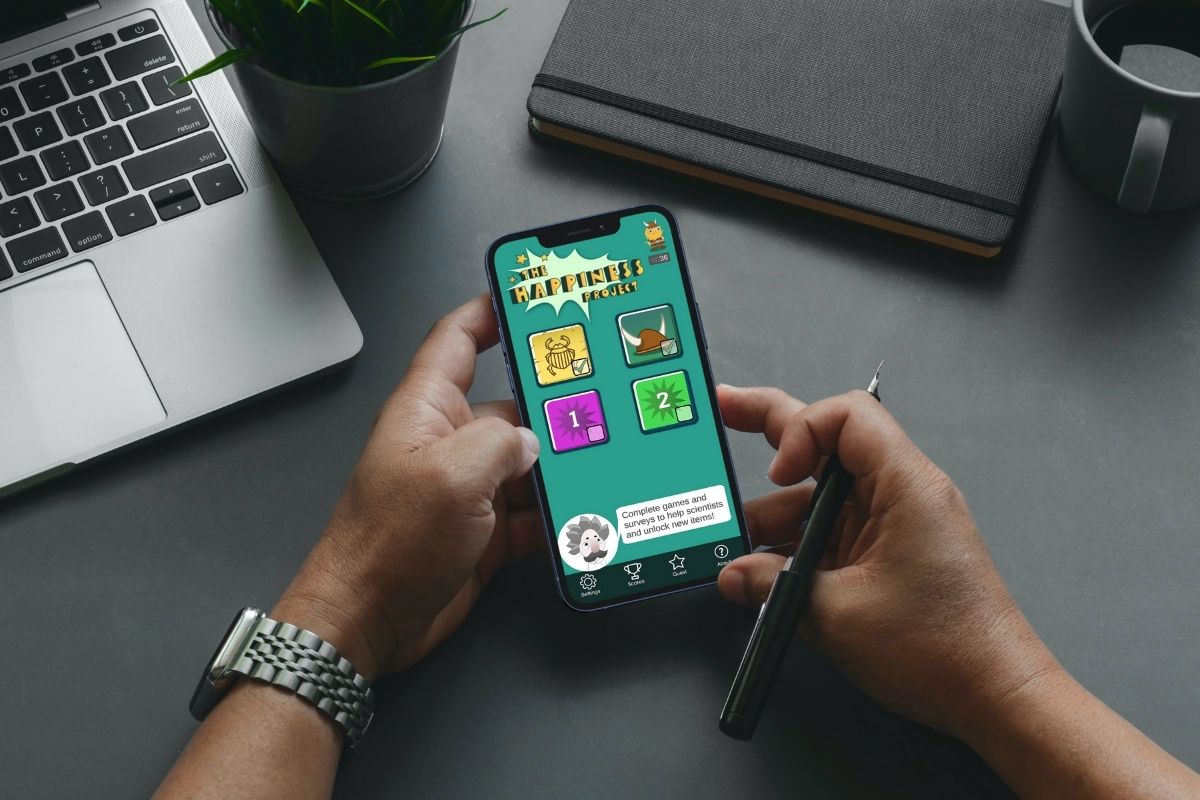
I don’t get heaps of time to play around with apps in the mental health space, other than ones I might be actively using myself (e.g. Insight Timer, Waking Up).
But I did quickly play around with this happiness research app the other day.
It is called The Happiness Project App – https://thehappinessproject.app/
In essence, it is a data collection device for The Happiness Project which was created by “neuroscientists working in the Rutledge lab at Yale University and at University College London in the Max Planck UCL Centre for Computational Psychiatry and Ageing Research and the Wellcome Centre for Human Neuroimaging. App development was supported by the UK Medical Research Council.”
But in using it, you can have a little bit of fun and learn some interesting things about how to bring more happiness into your life.
The setup is simple.
Download the app from the Google Play or Apple App store.
Go through all the introductory stuff:
- Tick a couple of boxes (notifications, terms and conditions)
- Read some information about the team behind the app – “neuroscientists studying happiness”
- Learn about how they use your data
- Understand that you are part of a unique scientific experiment
- Complete a very brief questionnaire: date of birth, gender, location, life satisfaction, qualification, language
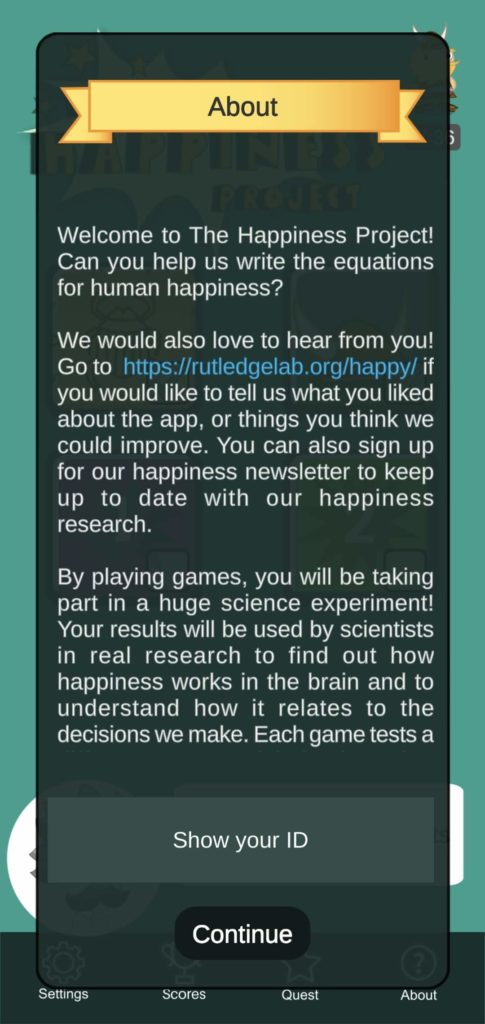
You then get to pick a character for yourself from a choice of Vikings, Egyptians, Pirates and Sailors.
Then you are launched into the app itself, which is basically a series of little games.
I played two of them.
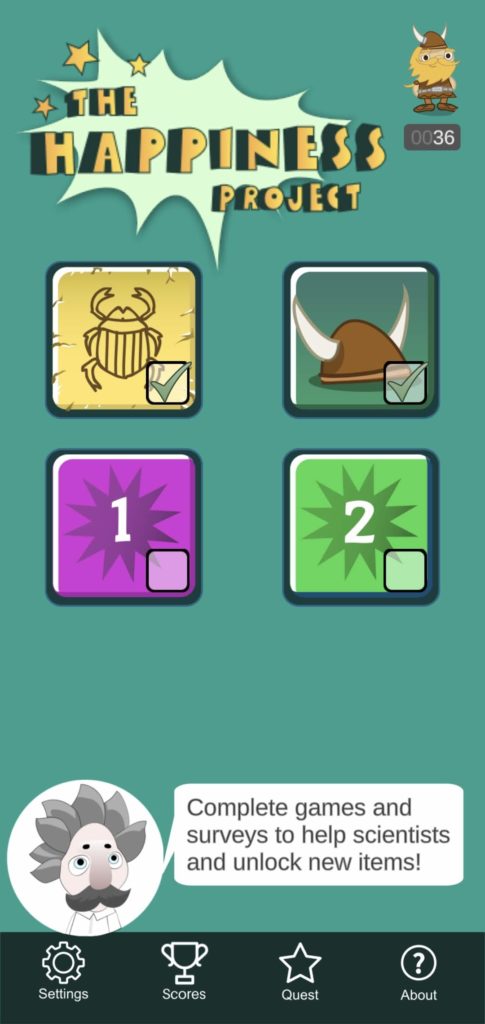
The first involved me identifying which of a number of presented animals hid the most amount of gems. Yeah, I know, that sounds bizarre, but it makes sense when you play it. As you are playing the game, it frequently asks you to rate your happiness level.
At first I thought this was a bit strange. Will my happiness really shift in just a manner of seconds from selecting a few ‘gem animals’?. But I observed that it actually did. Depending on how you are doing in the game, your happiness level does shift. Going well and thinking you are in control? – happiness increases. Failing or making mistakes? – happiness goes down.
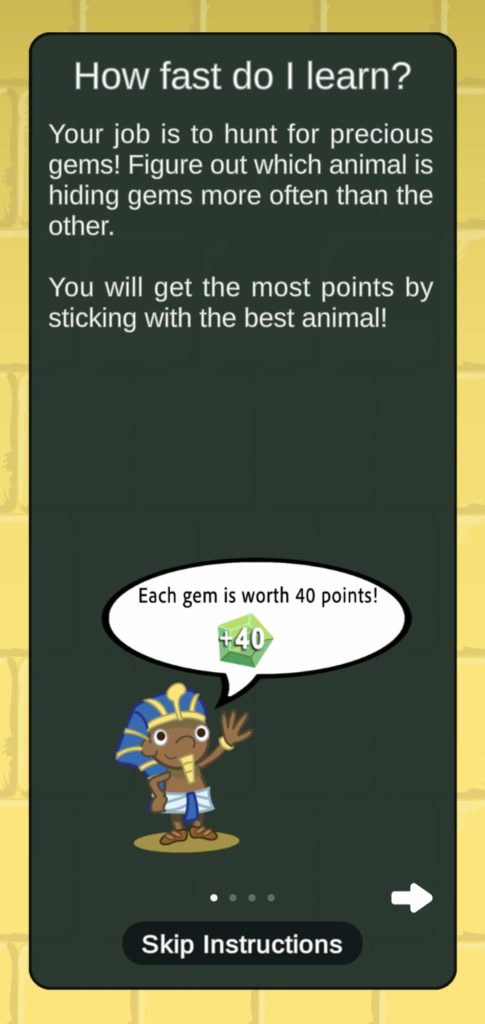
The second game I played tested my level of risk aversion by allowing me to accumulate points through a mix of either accepting a given gain/loss or spinning a wheel and letting chance decide. Again, I didn’t think playing would alter my happiness, but it did. I could feel my happiness (or frustration) level change, depending on how the game was developing.
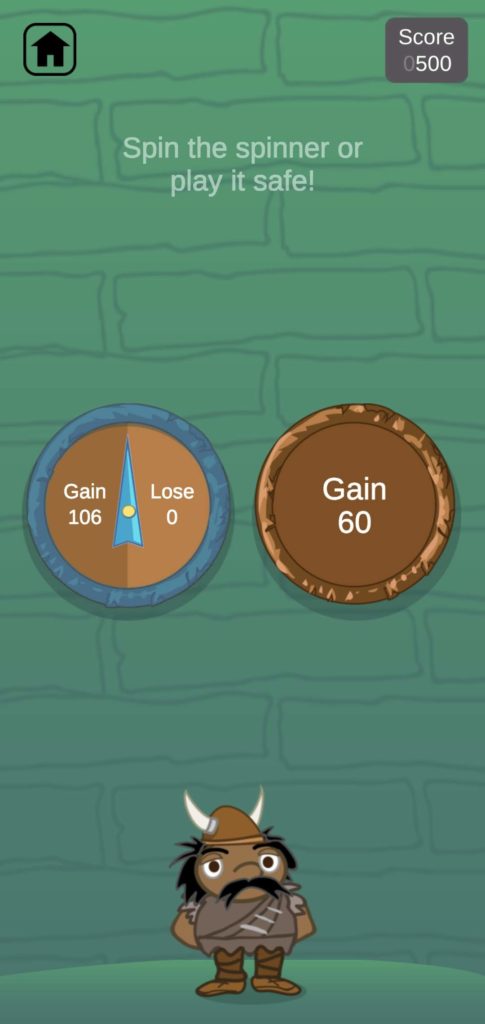
After each game you can get a brief description of the underlying psychological concept being explored in the game. For example the game involving animal gems tests the relationship between mood and memory.
You can play the games multiple times and try to beat your high score and if you complete enough games you finish a ‘quest’ or something similar.
I found the app to be a great little distraction and I have kept it on my phone. I liked that games were simple, still challenging, and that they draw your attention to relatively simple psychological dynamics that can have implications for your happiness.
I think the app fulfills its purpose nicely. An engaging set of games that provide useful data for researchers but also useful psychoeducation for users. I look forward to seeing where they take it.
To stay in touch with their work, I signed up to the newsletter on their site. Hopefully, future newsletters provide some further insights into the work they are doing.
Outside of the games, the app is relatively simple. I did like that the settings section has options to unenrol from the data collection and also withdraw your data if you want. That is a neat feature to have in an app that is collecting user data.
If this app gets you thinking more about mental health focused apps on your phone, check out the crew at Psyber Guide for more mental health app reviews.
Have a Happy Day
Dr G

